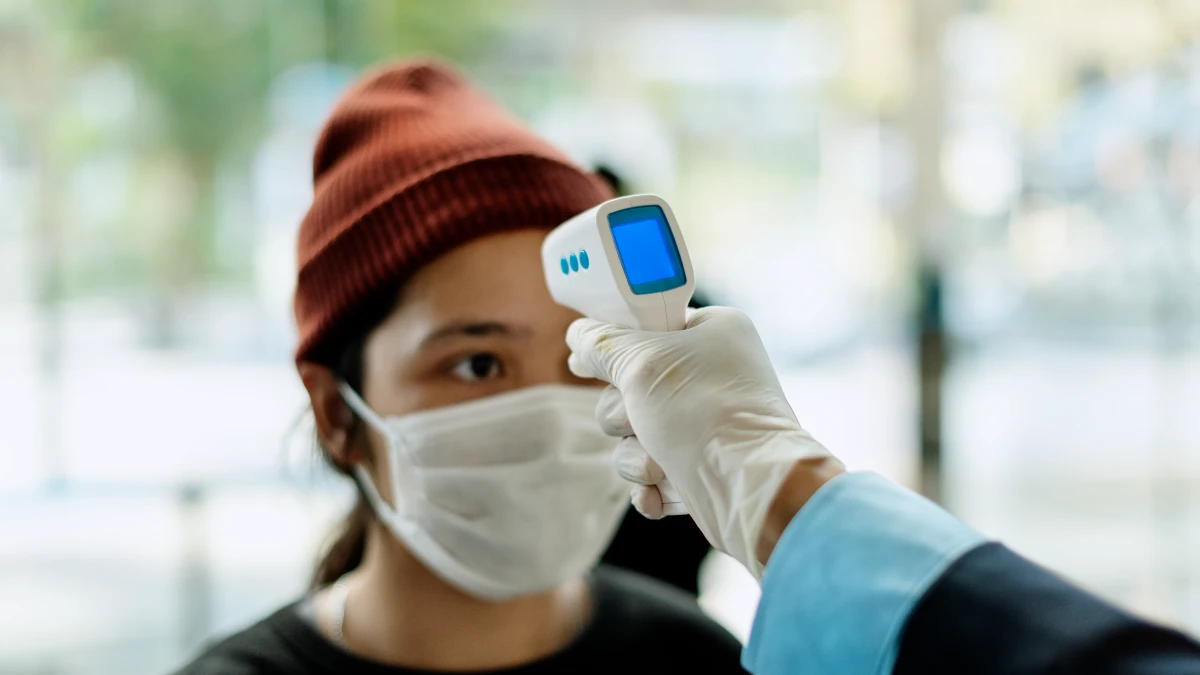Feeling tired even after a full night’s sleep? Or maybe you’re dealing with mood swings and brain fog that you just can’t shake. If you feel like something is ‘off’ but can’t pinpoint why, you are not alone.
These frustrating symptoms are often your body’s way of sending a message. They are tangible signals from your endocrine system. Hormones act as your body’s master regulators, and when they are out of balance, it can disrupt nearly every aspect of your well-being.
This guide will help you decode those signals and understand what’s really going on.
Your Monthly Report Card – Menstrual & Reproductive Health
Decoding Your Monthly "Report Card"
Your cycle is a key vital sign. Listen to what it's saying.
The "Typical" Cycle Range
A "regular" cycle isn't just 28 days. It's a range:
Don't Ignore These Flags
- Severe Pain: Cramps that disrupt your daily life.
- Heavy Flow: Soaking through a pad/tampon every 1-2 hours.
- Missed Periods: More than 3 cycles missed (when not pregnant).
- Spotting: Consistent bleeding between your periods.
Did You Know?
of women experience period pain, with 5-10% experiencing pain severe enough to disrupt their life.
Source: American College of Obstetricians and Gynecologists (ACOG)Expert Insight
"Think of your period as a monthly health report. It's one of the most reliable indicators of your underlying hormonal balance and overall wellness."– Inspired by Dr. Lara Briden, ND
Your menstrual cycle is a primary vital sign. Think of it as a monthly report card for your hormonal health. When things are off here, it's a critical clue that something deeper needs attention.
Irregular, Heavy, or Painful Periods While occasional changes are normal, a consistent pattern of irregularity is a major red flag. A clinically "irregular" cycle is shorter than 21 days or longer than 35 days.
High estrogen can contribute to heavy bleeding and painful periods, sometimes by stimulating the growth of non-cancerous uterine fibroids. In contrast, infrequent or absent periods are a hallmark of Polycystic Ovary Syndrome (PCOS), a condition where ovulation is disrupted.
Thyroid issues can also cause periods to become very light, heavy, or unpredictable. Track your cycle length, the heaviness of your flow, and the severity of any pain. This data is key for your doctor.
1. Irregular, Heavy, or Painful Periods

While occasional changes in your cycle due to stress or travel are normal, a consistent pattern of irregularity is a major red flag that your hormones may be out of balance. A clinically "irregular" cycle is one that is shorter than 21 days or longer than 35 days.
If your period doesn't arrive around the same time each month, or you skip some months entirely. It might mean that your levels of estrogen and progesterone are too high or too low.
The cause of these irregularities often comes down to specific hormonal shifts. High levels of estrogen, for instance. Can contribute to heavy bleeding and painful periods, sometimes by stimulating the growth of non-cancerous uterine fibroids.
It's not just your reproductive hormones that can cause issues. Your thyroid gland also plays a key role in regulating your menstrual cycle. An underactive or overactive thyroid can cause your periods to become very light, heavy, or unpredictable. Because so many factors can be at play, tracking your symptoms is crucial.
2. Chronically Low Libido & Vaginal Dryness

This is a common and valid medical concern, not a personal failing. Many women experience a drop in their sex drive at some point, and hormones are often the reason. Estrogen is key for maintaining the elasticity and moisture of vaginal tissue.
When estrogen levels drop, especially during perimenopause and menopause, you may experience vaginal dryness. Which can make intercourse uncomfortable or painful.
Testosterone, though known as a male hormone, also plays a vital role in female desire. When testosterone levels fall, it can have a direct impact on your libido. On top of that, chronic stress is a major libido-killer.
When you're constantly stressed, your body produces high levels of the stress hormone cortisol. Which can suppress your sex hormones and further reduce your desire for intimacy.
If you're going through menopause, you may want to talk to a women's health expert about trying testosterone as part of hormone replacement therapy. It can be given in very low doses and can help improve libido as well as boost your mood and energy levels.
Is your lack of desire persistent and causing you distress? Is sex uncomfortable or painful? These are important signs to discuss with your doctor.
3. Fertility Challenges

Getting pregnant requires a precise hormonal symphony. Hormones like Follicle-Stimulating Hormone ($FSH$) and Luteinizing Hormone ($LH$) are essential to trigger ovulation. The release of an egg from your ovaries. If these hormones are out of balance, it can make it difficult to conceive.
Infertility is directly linked to PCOS, which is the most common cause of infertility in women due to a lack of ovulation. High levels of FSH can also reduce a woman's chances of getting pregnant, while low levels of LH can also cause fertility problems. Early menopause and other hormone-related conditions will also affect your fertility.
If you are under 35 and have been trying to conceive for over a year, or over 35 and have been trying for six months, it's time to talk to a doctor. This is especially true if you also have irregular cycles, as this is a strong indicator that a hormonal issue may be at play.
4. Persistent Adult Acne (Especially Jawline)

Dealing with acne long after your teenage years is frustrating. If you're still breaking out well beyond puberty, it could be a sign of a hormonal imbalance. Hormonal acne often shows up as deep, painful. Cystic pimples that typically appear on the lower part of your face, including your jawline, chin, and neck. This is a classic sign of excess androgens, like testosterone.
These "male" hormones, which all women have in small amounts, can cause your skin's oil glands to overwork. This leads to an overproduction of sebum (oil), which then clogs your pores and causes acne. This is a key feature of PCOS and can be made worse by insulin resistance, another common hormonal issue.
While a breakout before or during your period is normal, acne that won't clear up can be a symptom of a deeper hormone problem. Adult acne affects about 50% of women in their 20s and can continue for decades. It's an inside job that needs to be tackled internally by treating the underlying hormonal imbalance.
5. Hair Thinning or Unwanted Hair Growth (Hirsutism)

This sign can be paradoxical: you may notice too little hair where you want it, and too much where you don't. Hair loss on your head, known as alopecia, can be linked to thyroid problems.
Both an underactive and an overactive thyroid can cause your hair to thin. The decline in estrogen during and after menopause is another common cause of hair loss. In fact, more than 50% of women over the age of 50 experience female pattern hair loss.
On the other hand, hirsutism—the growth of coarse, dark hair on the face, chin, chest, or back—is a direct result of high androgen levels. This is a primary sign of PCOS and can be one of the most distressing symptoms for women with the condition.
6. Stubborn Weight Gain (Especially Abdominal) or Unexplained Weight Loss

Many women experience weight gain that feels completely disconnected from their diet and exercise efforts. If you're eating well and staying active but still gaining weight, a hormonal imbalance could be the culprit. Several different hormones can be responsible for this frustrating symptom.
An underactive thyroid (hypothyroidism) slows your body's metabolism to a crawl, which can lead to weight gain. Insulin resistance, a core feature of PCOS, means your body can't use glucose effectively, leading to increased fat storage, particularly in the abdomen.
Chronic stress leads to chronically high levels of cortisol, which signals your body to store fat, especially around your midsection. Finally, the decline in estrogen during menopause slows your metabolism and shifts fat storage from your hips and thighs to your abdomen.
In contrast, unexplained weight loss can be a sign of an overactive thyroid (hyperthyroidism), which speeds up your metabolism. Any significant weight change, whether it's gain or loss, that doesn't have a corresponding change in your lifestyle is worth discussing with a doctor.
7. Pervasive Fatigue That Rest Doesn't Fix

This isn't the kind of tiredness you feel after a long day. It's a bone-deep exhaustion that a full night's sleep doesn't seem to touch. If you're constantly dragging your feet and unable to get going without one (or more) cups of coffee, a hormonal imbalance could be to blame.
An underactive thyroid is a primary suspect, as it slows down all of your body's energy-producing processes.
Another key factor can be HPA axis dysregulation, often called "adrenal fatigue," which results from chronic stress. This can lead to low cortisol levels and persistent fatigue. Low levels of the hormone progesterone can also contribute to a constant groggy feeling. Women with PCOS are also more likely to experience fatigue.
Waking up tired after a full night's sleep, needing multiple cups of coffee just to get through the morning. And feeling too exhausted for your normal activities are all signs that your fatigue may be more than just regular tiredness.
8. Chronic Sleep Problems & Night Sweats

It's a maddening cycle: you're exhausted all day, but when you finally get into bed, you can't get the restorative sleep you need. If this sounds familiar, your hormones could be at play.
The hormone progesterone is calming and helps to promote sleep. When its levels are low, which is common in the second half of the menstrual cycle and during perimenopause. It can be difficult to fall asleep or stay asleep.
Low levels of estrogen are the main culprit behind hot flashes and night sweats. These are sudden, intense feelings of heat that can drench your sheets and severely disrupt your sleep.
Up to 80% of women experience hot flashes and night sweats during the menopausal transition, and for many. They can last for years, making sleep disruption a long-term problem.
9. Intense Mood Swings, Anxiety, or Depression

Feeling like you're on an emotional rollercoaster that you can't control is a common sign of hormonal shifts. Estrogen has a profound effect on the mood-regulating chemicals in your brain, including serotonin and dopamine.
When your estrogen levels are erratic, as they are in the lead-up to your period or during perimenopause, it can feel like your emotional equilibrium is gone. This can lead to irritability, anxiety, and sadness.
Low progesterone can also contribute to anxiety and mood changes. Furthermore, thyroid imbalances are notorious for mimicking psychiatric disorders. Hypothyroidism often presents as depression, while hyperthyroidism can manifest as severe anxiety.
If you're experiencing new or worsening mood symptoms, it's important to consider that a hormonal imbalance could be the root cause.
Moods that shift dramatically without a clear external trigger, feeling weepy or irritable for no reason. Or experiencing new or worsening anxiety or depression are all signs to pay attention to.
10. Brain Fog & Poor Concentration

Brain fog is a real, physiological phenomenon. It can feel like you're walking around in a fuzzy haze, unable to think clearly, and constantly forgetting things. If this sounds familiar, a hormonal imbalance could be to blame.
Estrogen, progesterone, and testosterone all play important roles in cognitive function by influencing blood flow and chemical activity in the brain.
The decline in estrogen during perimenopause and menopause is a well-documented cause of memory lapses and difficulty concentrating. Many women worry that these cognitive changes might be a sign of early dementia.
But the good news is that research shows they are typically temporary. Thyroid and cortisol imbalances can also severely impact your mental clarity.
11. Persistent Digestive Distress (Bloating, Gas, Irregularity)

There is a common but often overlooked link between your gut health and your hormones. Your gut is lined with tiny cells called receptors that respond to estrogen and progesterone. This means that when these hormones are higher or lower than usual, you might notice changes in how you're digesting food.
Progesterone slows down your gut motility, which can lead to constipation, gas, and bloating—especially in the week before your period. On the other hand, estrogen can speed up motility, which can lead to diarrhea.
This hormonal fluctuation is why many women experience cyclical digestive issues that seem to come and go with their menstrual cycle. Chronic stress and high cortisol also have a negative impact on digestion.
It's also worth noting that women are six times more likely to have Irritable Bowel Syndrome (IBS) than men, and this is partly due to these hormonal and anatomical differences.
Do your digestive symptoms like bloating or constipation get worse at specific times in your menstrual cycle? This is a key clue that your hormones may be involved.
12. Headaches & Migraines (Especially Cyclical)

For women who suffer from migraines, learning about the connection between hormones and headaches can be a lightbulb moment. "Hormonal headaches" are very common and are often triggered by the sharp drop in estrogen that happens right before your period.
The unpredictable fluctuations of estrogen during perimenopause can also be a major migraine trigger for many women. If you suffer from headaches or migraines, tracking them can be incredibly helpful.
Use a tracking app to log your headaches. You may see a clear pattern that is linked to your menstrual cycle, which can help you and your doctor find the right treatment.
13. Weak Bones & Muscle Aches

This is a "silent sign" of hormonal imbalance that requires proactive attention. Estrogen plays a critical role in protecting your bone density. As your estrogen levels drop during and after menopause, your bone is broken down faster than it is rebuilt.
This significantly increases your risk of osteoporosis, a condition that causes your bones to become weak and brittle.
Many women don't realize their bones are weakening until they suffer a fracture, which is why awareness of this issue is so important. Unexplained muscle aches and stiffness can also be a key symptom of an underactive thyroid or perimenopause.
A family history of osteoporosis, new and persistent muscle aches, or entering your 40s. And 50s are all reasons to pay closer attention to your bone and muscle health.
14. Changes in Temperature Sensitivity & Heart Rate

Your body's internal thermostat and pacemaker can be thrown off by hormonal imbalances. Your thyroid gland is the master regulator of your metabolism and body temperature.
An underactive thyroid (hypothyroidism) can make you feel constantly cold. While an overactive thyroid (hyperthyroidism) can cause heat intolerance and excessive sweating.
Thyroid hormones also directly control your heart rate. Hypothyroidism can cause a slow heart rate. While hyperthyroidism can cause a dangerously fast or irregular heartbeat.
Hot flashes, a classic sign of low estrogen in menopause, are another form of profound temperature dysregulation that can leave you feeling intensely hot and sweaty.
Feeling cold when others are warm (or vice versa), experiencing heart palpitations or a racing heart at rest. Having sudden, intense waves of heat (hot flashes) are all signs that your hormones may be affecting your body's internal controls.


